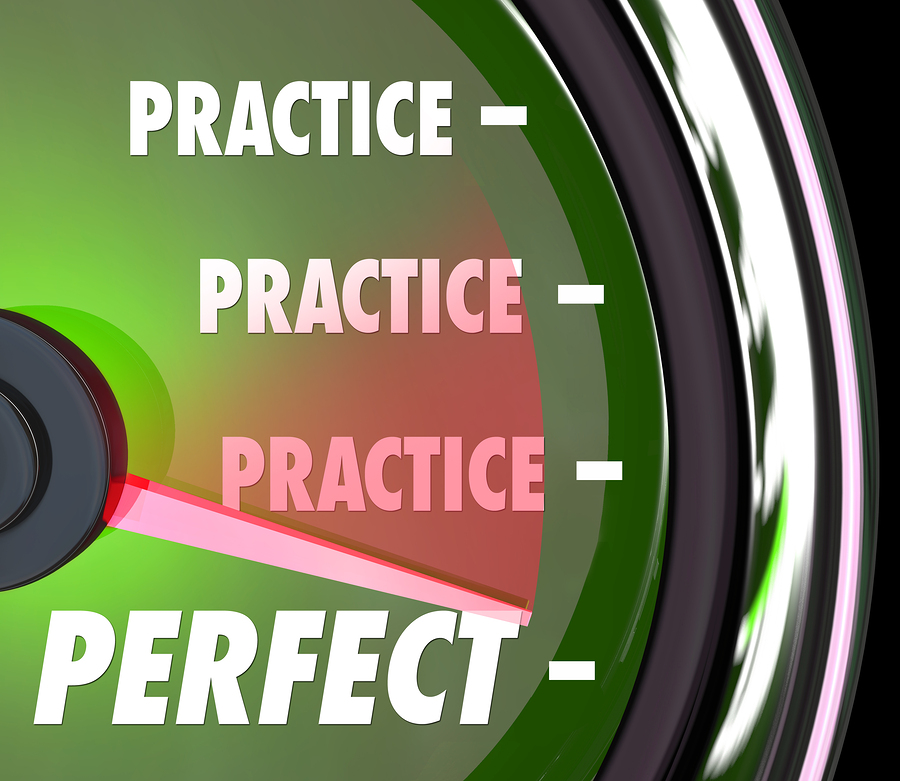Before musicians perform, they practice, and then practice some more. The best musicians might practice eight hours a day, every day, for many years. Then maybe, just maybe they get paid to perform, which rarely makes up for the thousands of hours they practiced for free.
Before an artist paints or sculpts or creates anything, they practice and practice some more and throw away many of the things they deemed unworthy of attaching their name, until they are mega-famous at which time their paint-by-number picture of dogs playing poker is worth three million dollars.
Most artistic ventures, including writing, require you do most of it for practice.
Every writer needs to write some things they never intend to publish, because it was just practice.
Professional writers have a thick file of work kept out of sight. Because it was just practice.
Of course, the written word is different than music or fine art since writers can edit and re-write until something is good enough to publish, but a lot of writing is just practice and it is done on your time, unpaid.
Malcolm Gladwell asserts in his book Outliers that it takes 10,000 hours before someone is phenomenally good at something, such as the best pianist in the world, the best golfer, the best at anything. Those 10,000 hours are mostly practice.
It is a difficult pill to swallow, but maybe your first full book manuscript is practice and never intended to be published. It is best set aside so you can write another.
When I hear about an author who took the last ten years working on their book, my initial reaction is that the book is over-written, over-edited and the author has limited range. Those are not good impressions to send.
I would rather hear from someone who has been writing for ten years and has written two full-length books, 200 devotions, 100 poems, 12 short stories, 500 blog posts, 100 articles for their community newsletter and edit their monthly church newsletter in their spare time. They show a commitment to writing, not an obsession to one idea.
A single book might gain initial attention, but it will be an author’s ability to perform over time that will get them signed by an agent. After all, agents represent authors and writers, not books.
It’s been said that true talent is the ability to repeat something amazing. (A corollary to this is one of my favorite quotes, “A broken clock is right twice per day,” but I digress.)
How do you practice writing?
By writing something every day. This is why blogging or journaling regularly is so important for a writer. It forces you to write every day.
What if you don’t feel like writing or have writer’s block?
Science fiction and fantasy writer Fred Saberhagen, said it best, “I suspect that writer’s block afflicts mainly people who have some stable and ample source of income outside of writing.”
Ouch.
A number of writers have asked me what they should do once they finish their manuscript. I will tell them to do whatever they want, but keep writing.
The best and most successful writers keep writing.
Golfer (not the drink) Arnold Palmer said, “The more I practice, the luckier I get.”
The same principle works for writers. The more you write, the greater the chance you will one day be published.
Writers write. That’s what they do.
That book you have been working on for so long? It might be a practice-book.
I was going to list some activities for writers that constitute “practice” but characterizing articles, blogs, devotionals, poetry and short stories as practice diminishes the skill each require to do them well and is unfair to those who are great at each of them. Books are not the only written medium. (Sorry to break the news)
Write whatever you want, but write something every day. Just for practice. An encouraging 150 words, beautifully crafted for a friend in an email qualifies. Just don’t tell them you are writing for practice. It sort of ruins the mood when your friend discovers that the thought didn’t count.
Author Ray Bradbury said, “I know you’ve heard it a thousand times before. But it’s true – hard work pays off. If you want to be good, you have to practice, practice, practice. If you don’t love something, then don’t do it.”
Writing. Just do it. (Used without permission of Nike)


